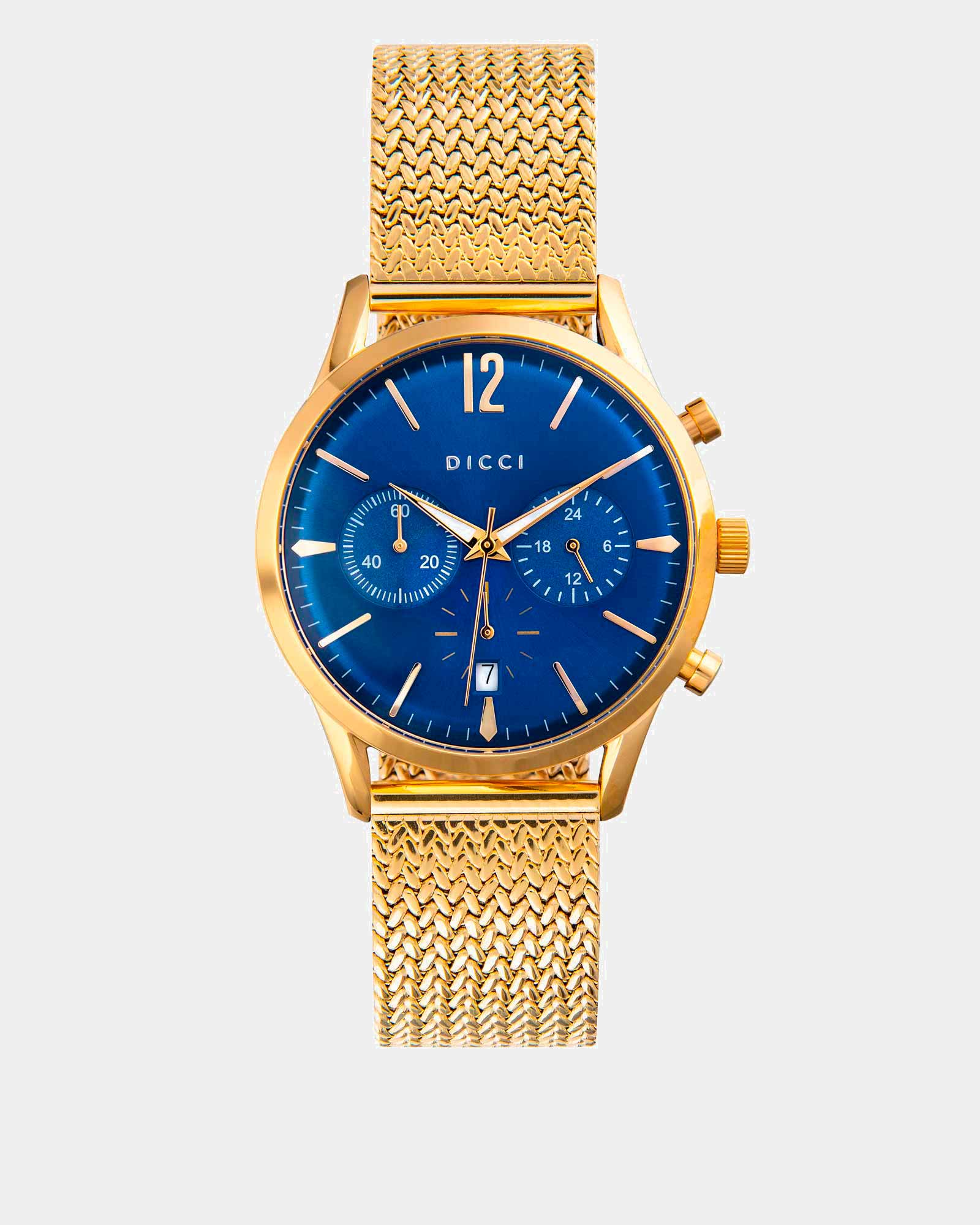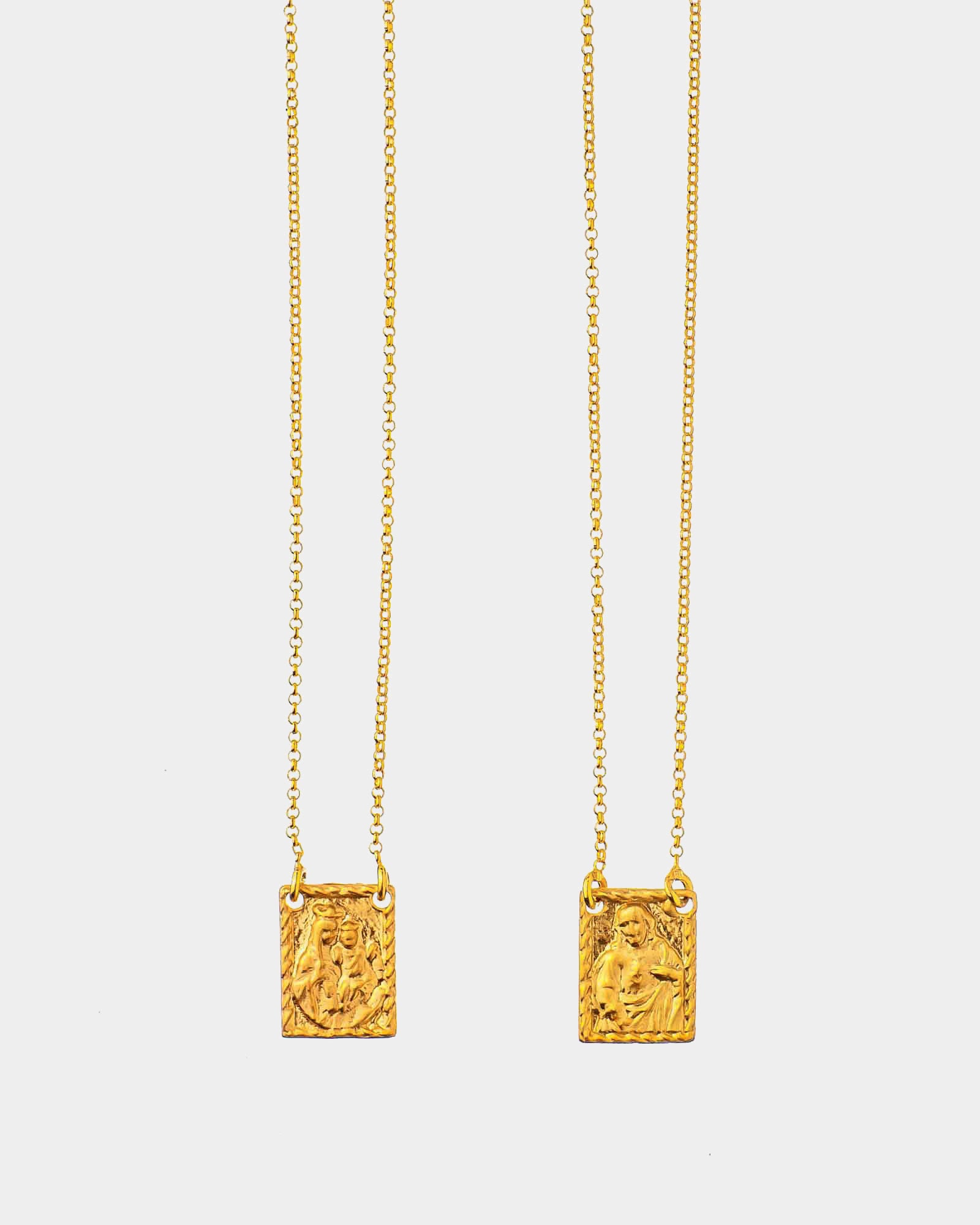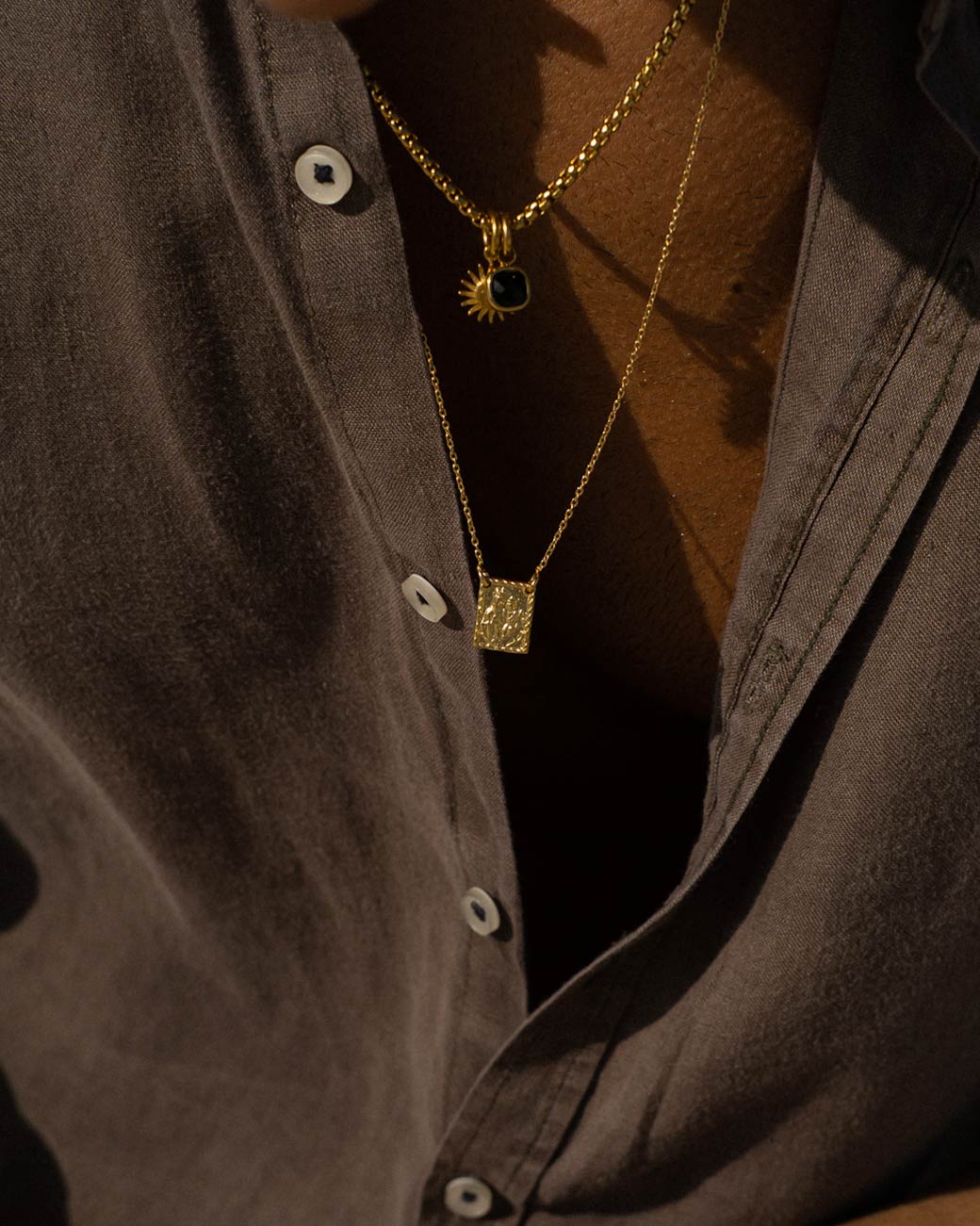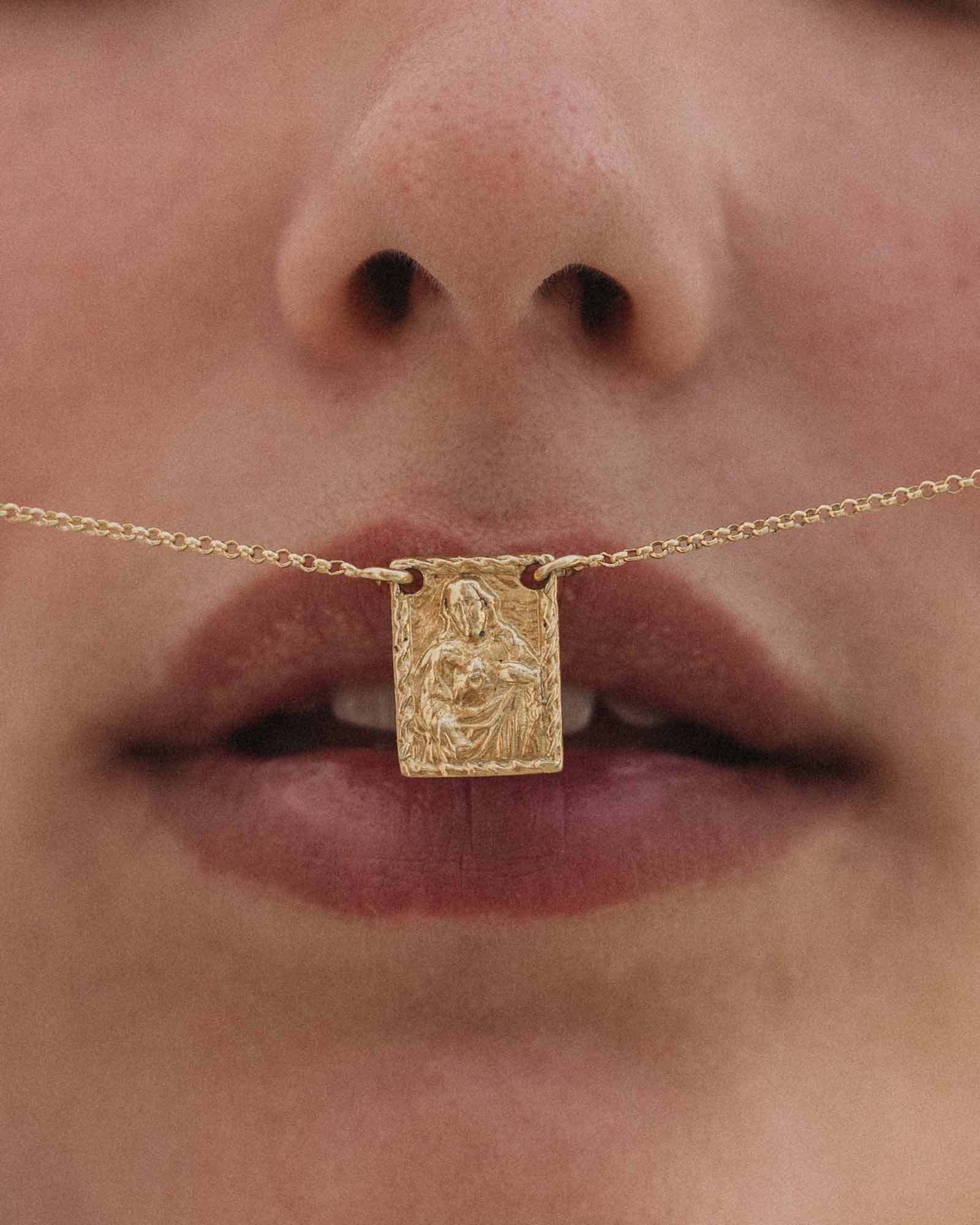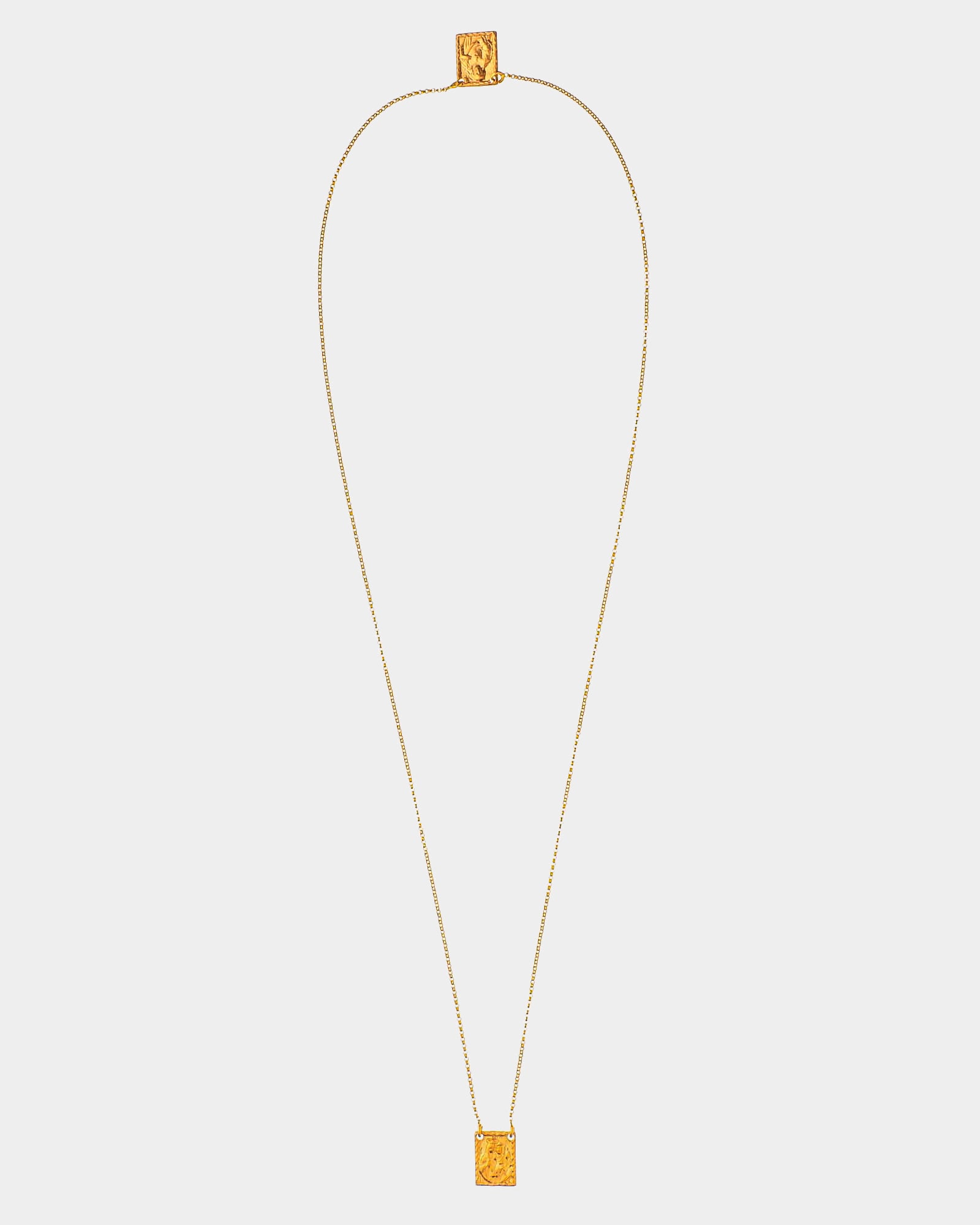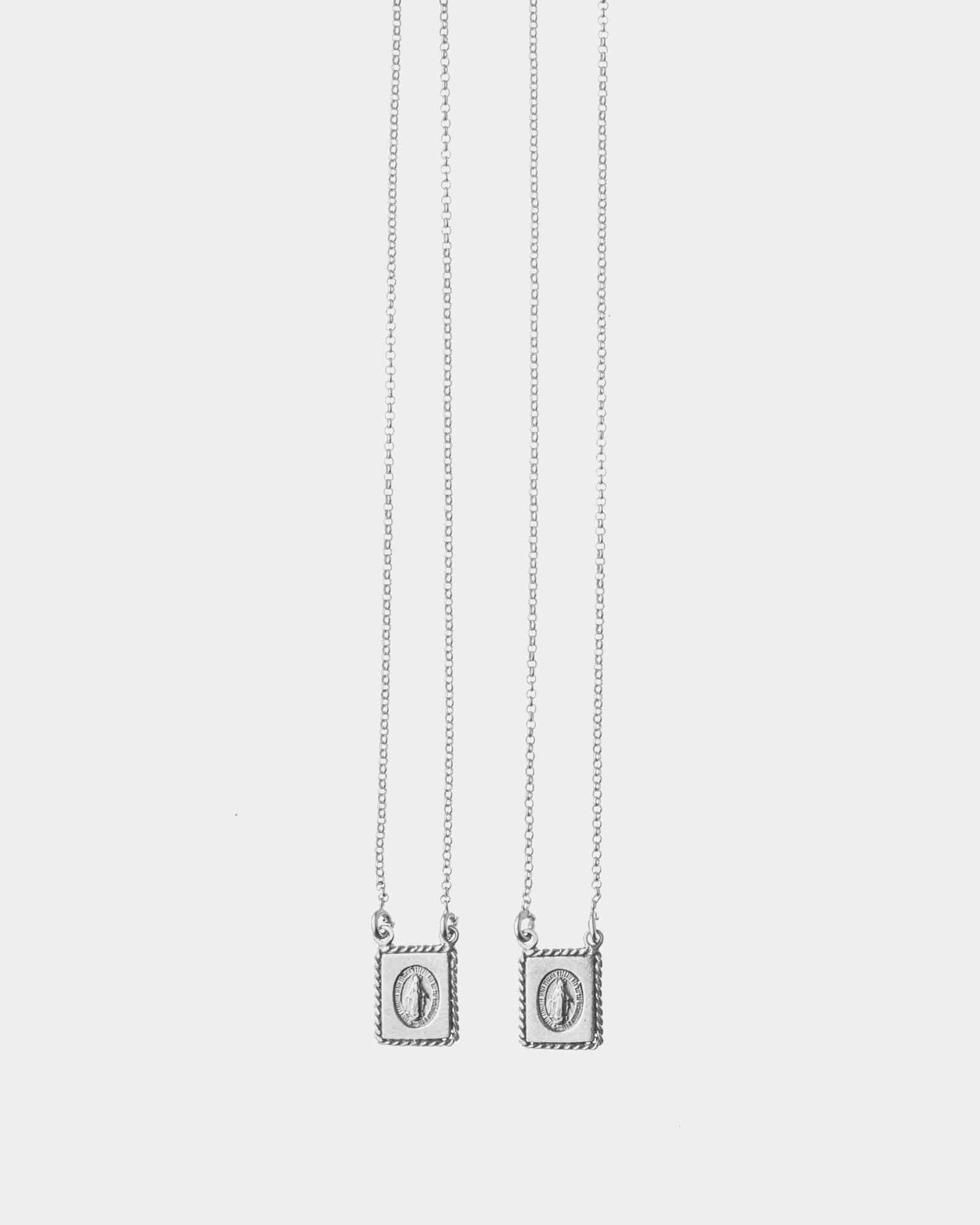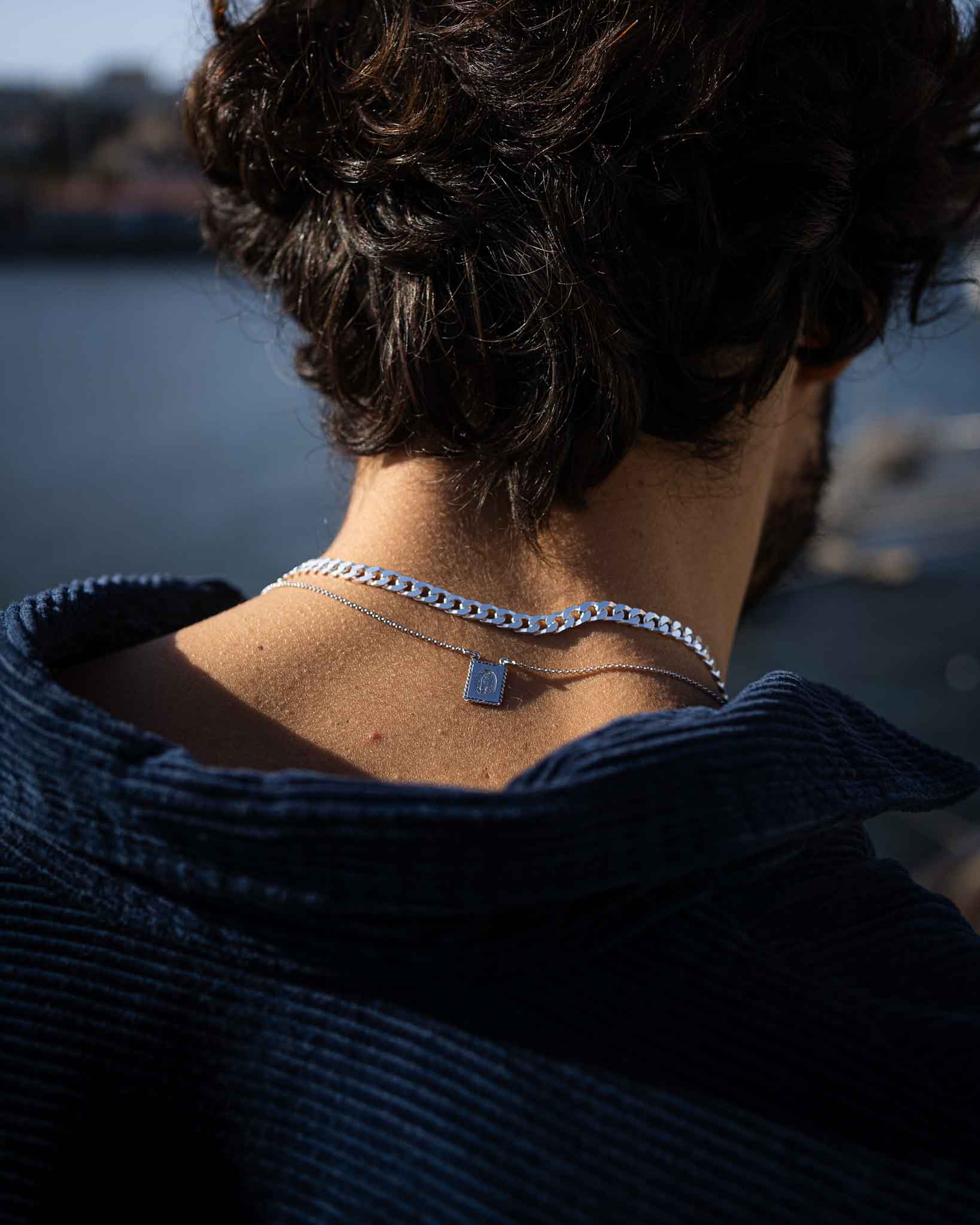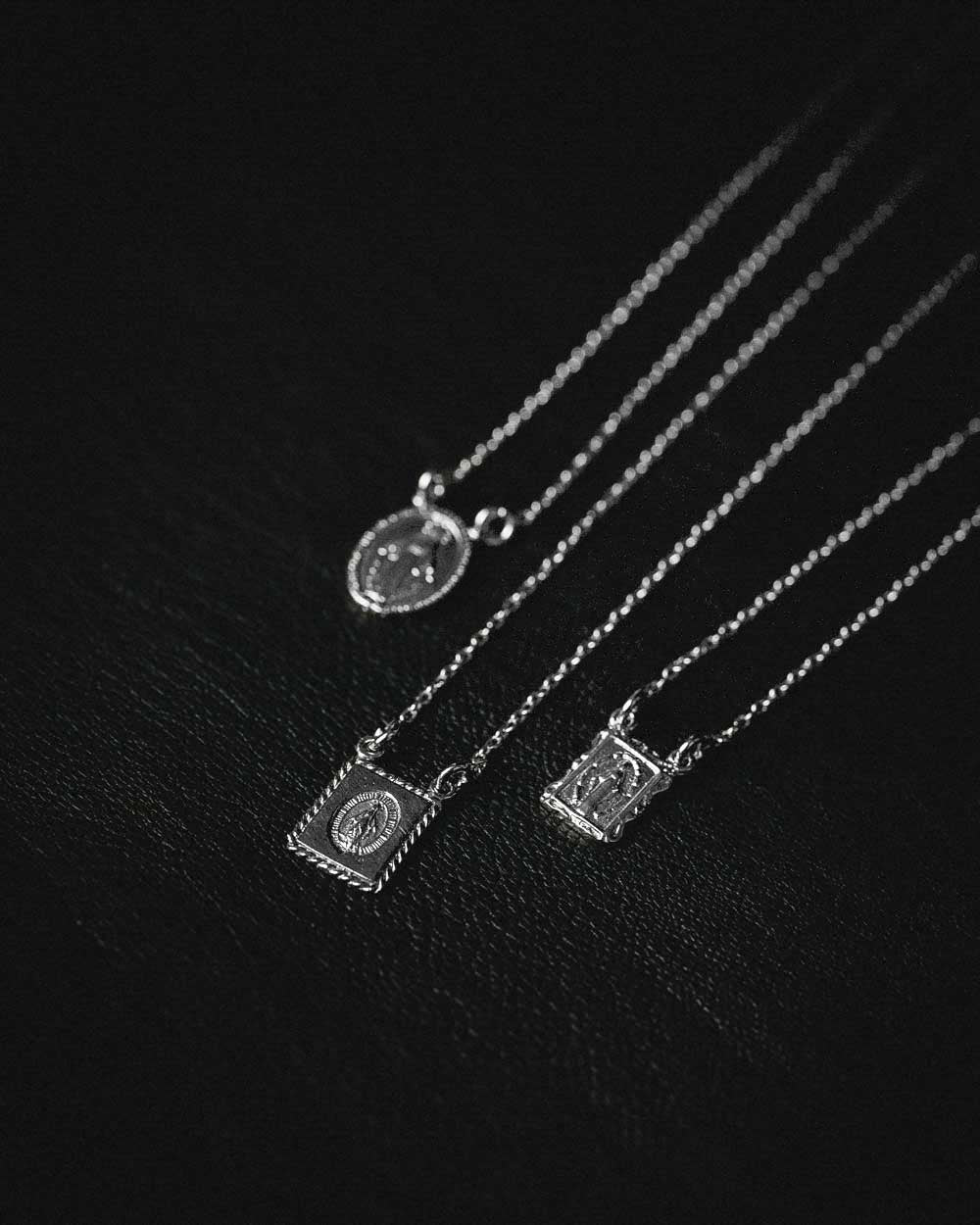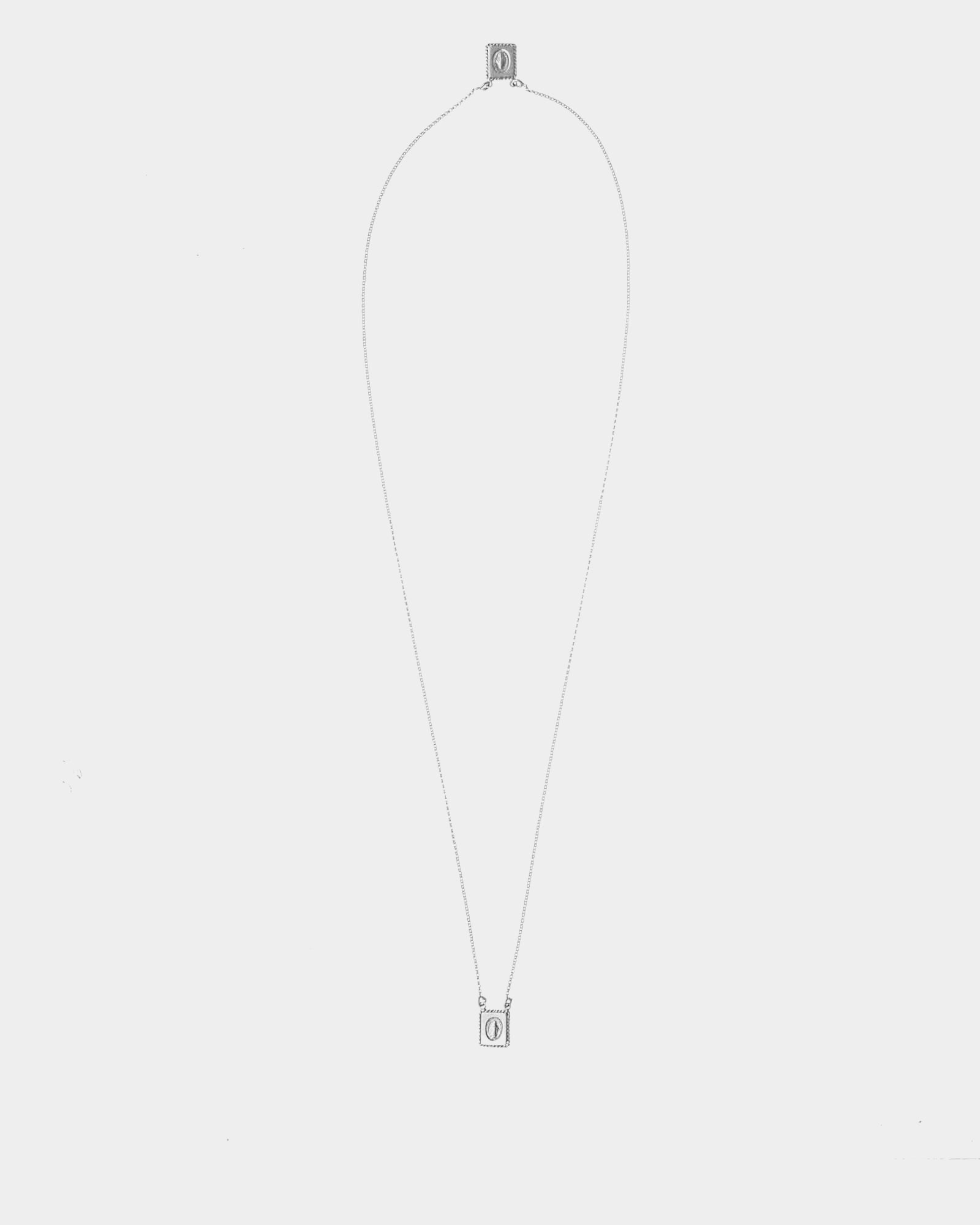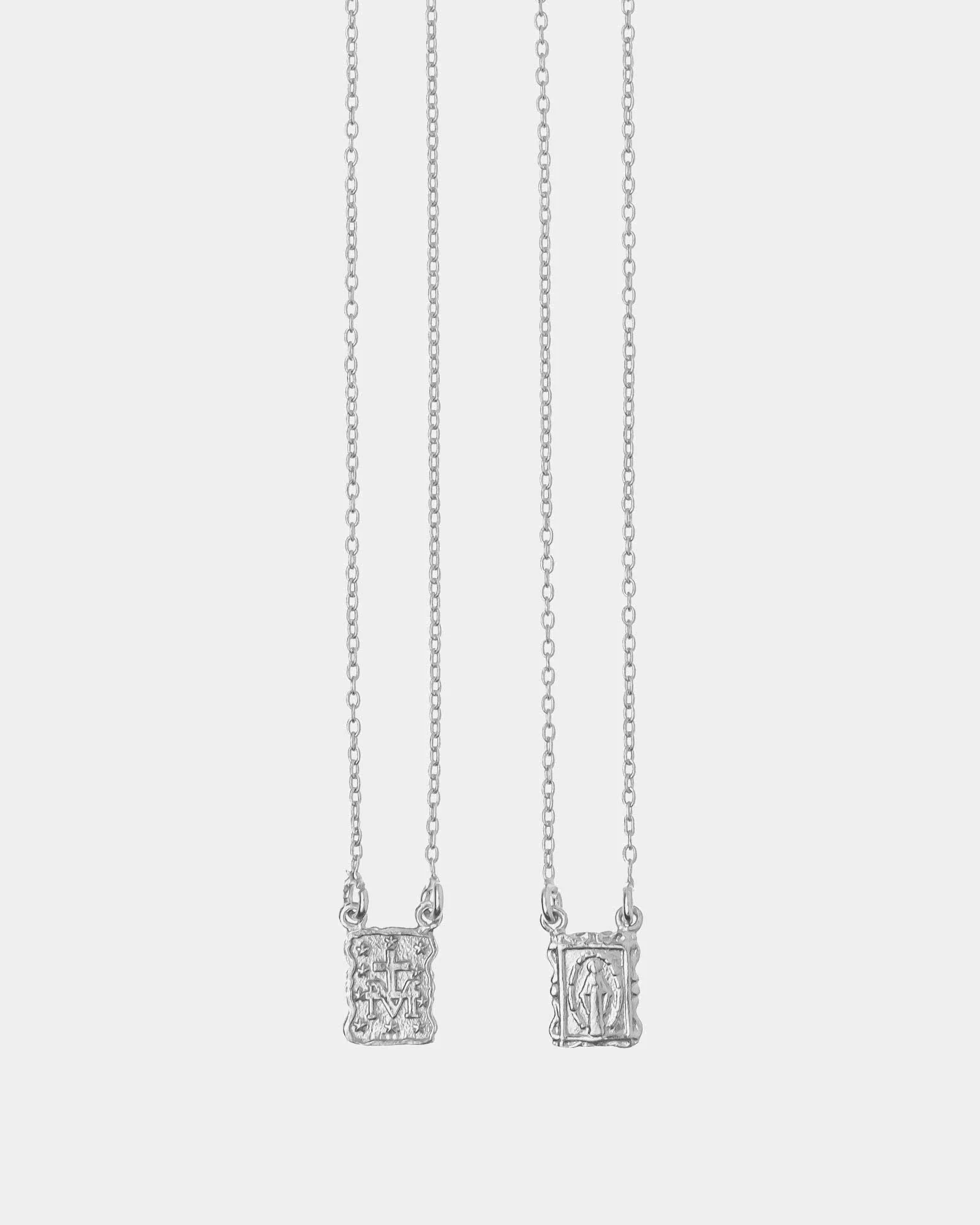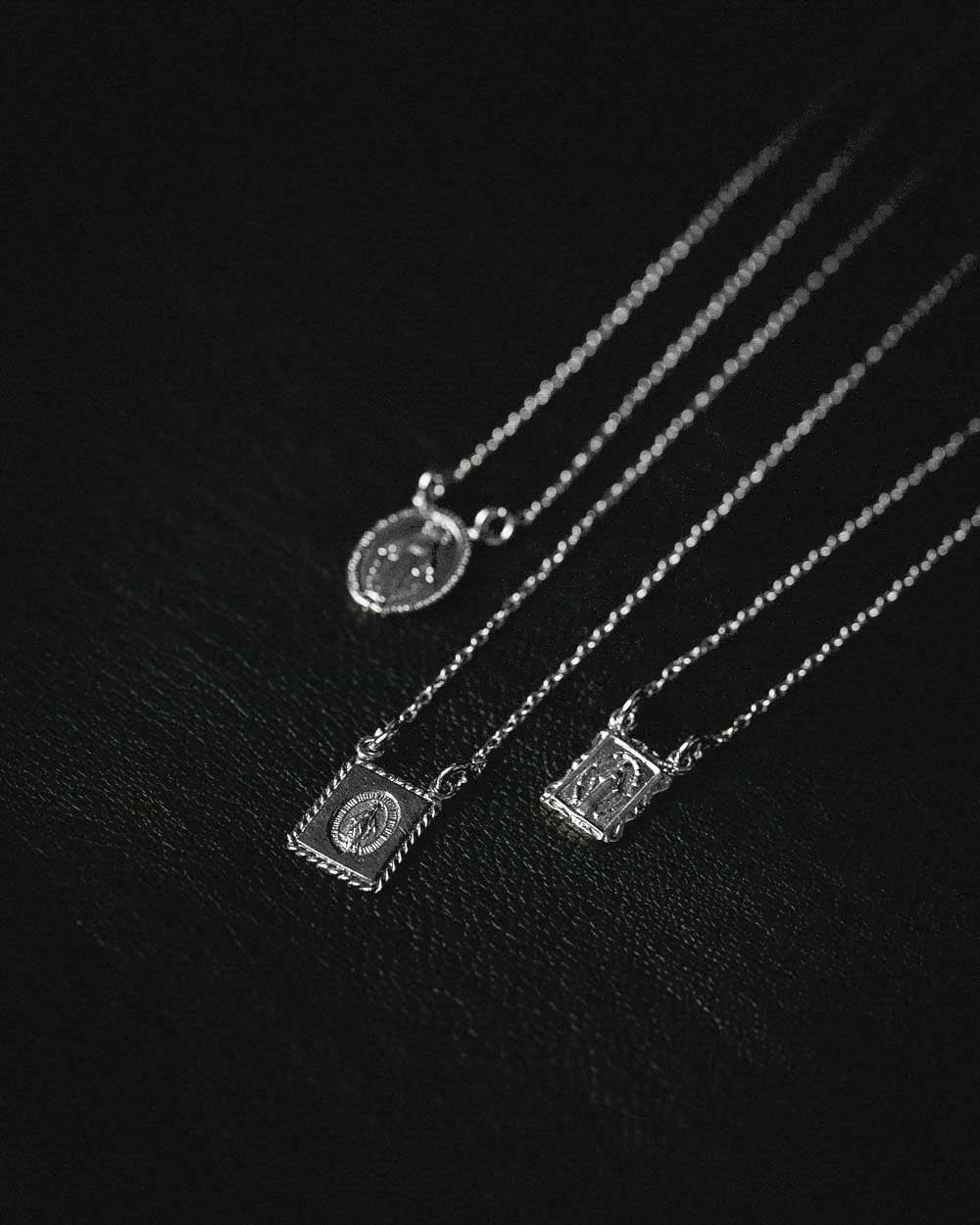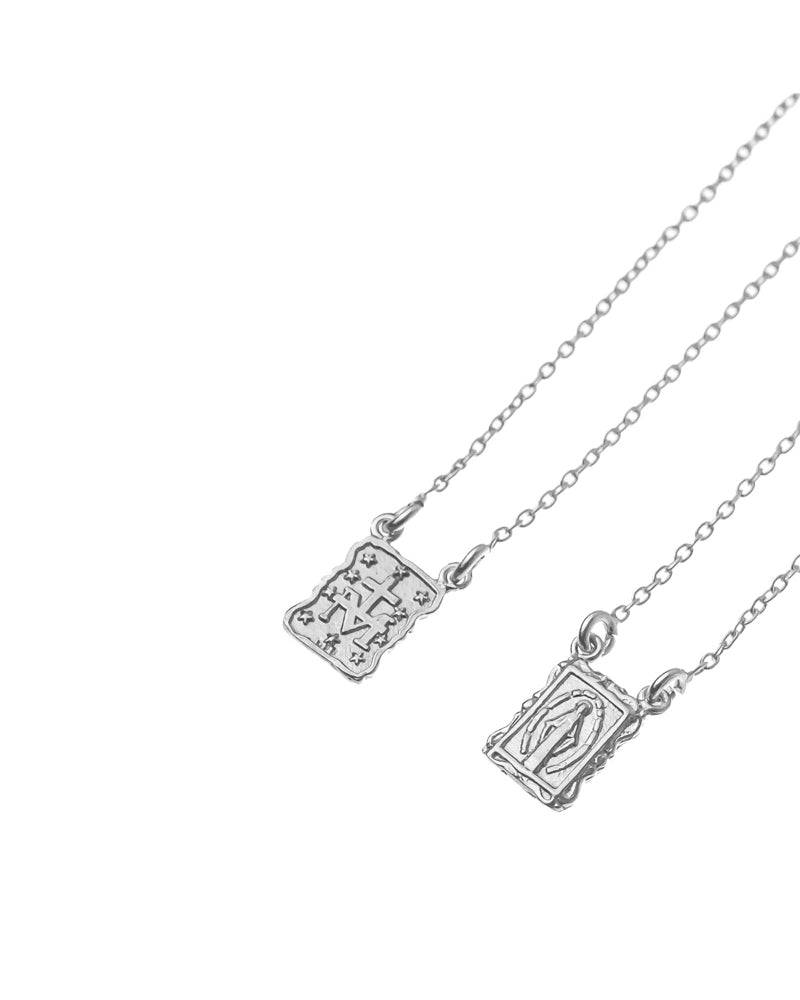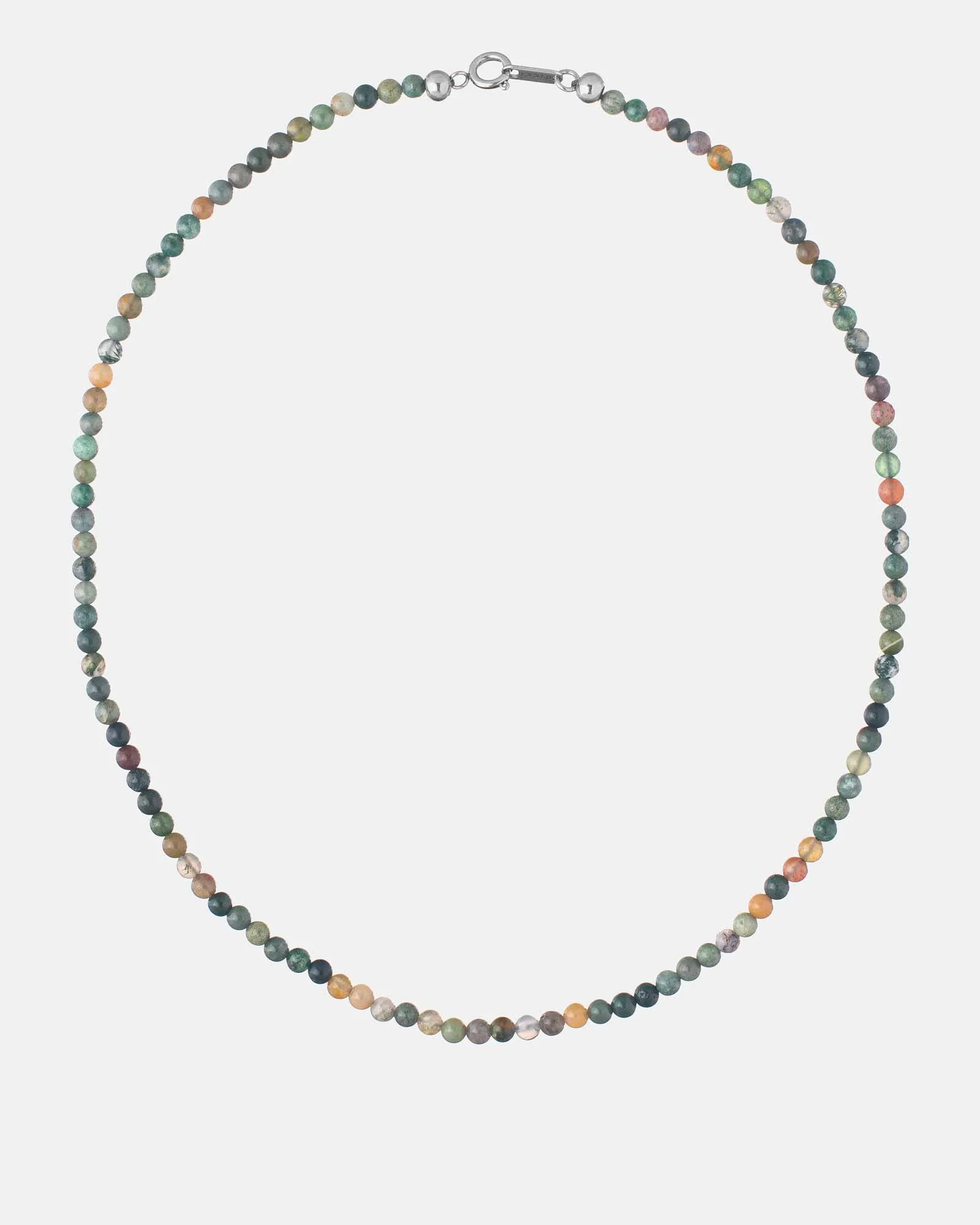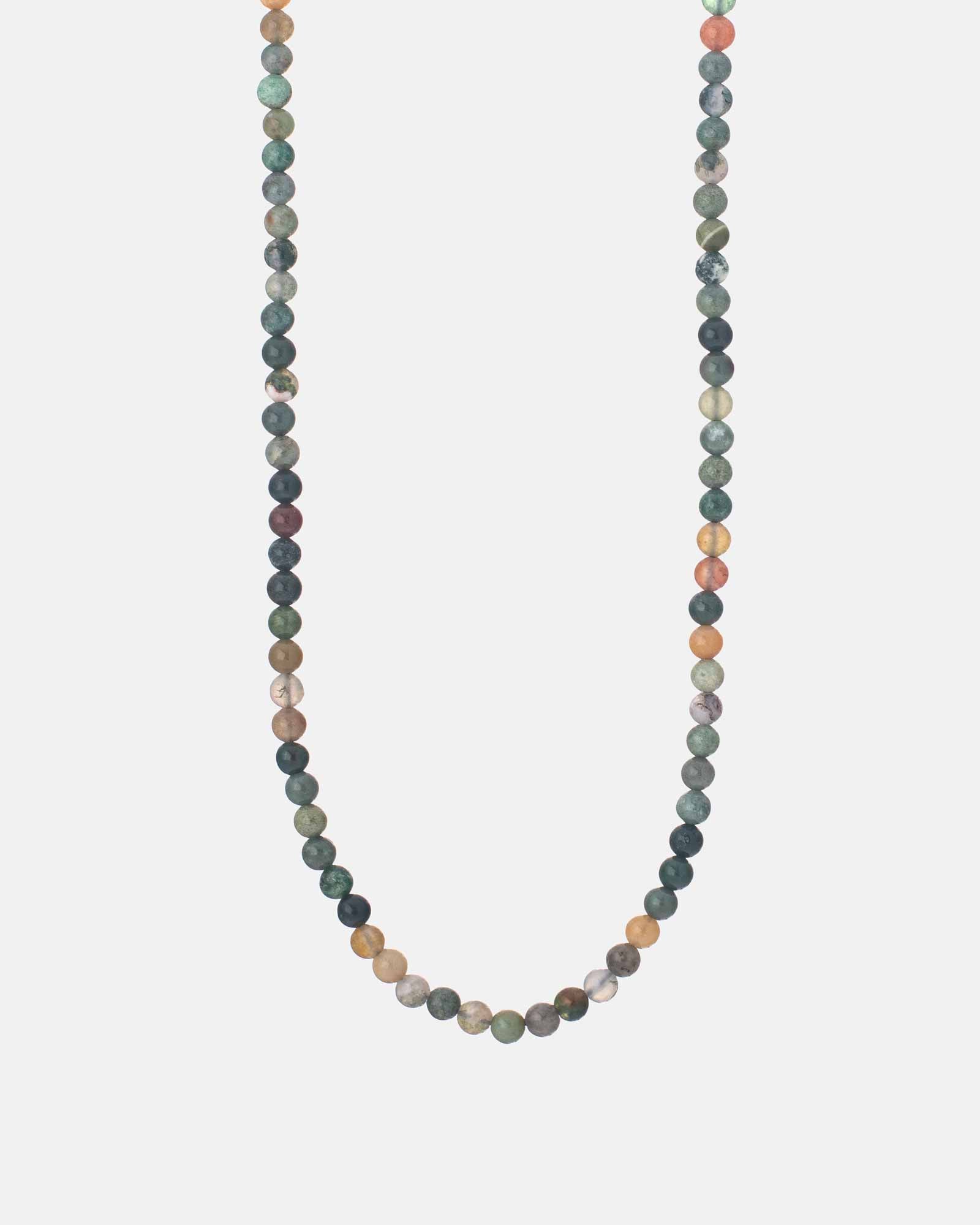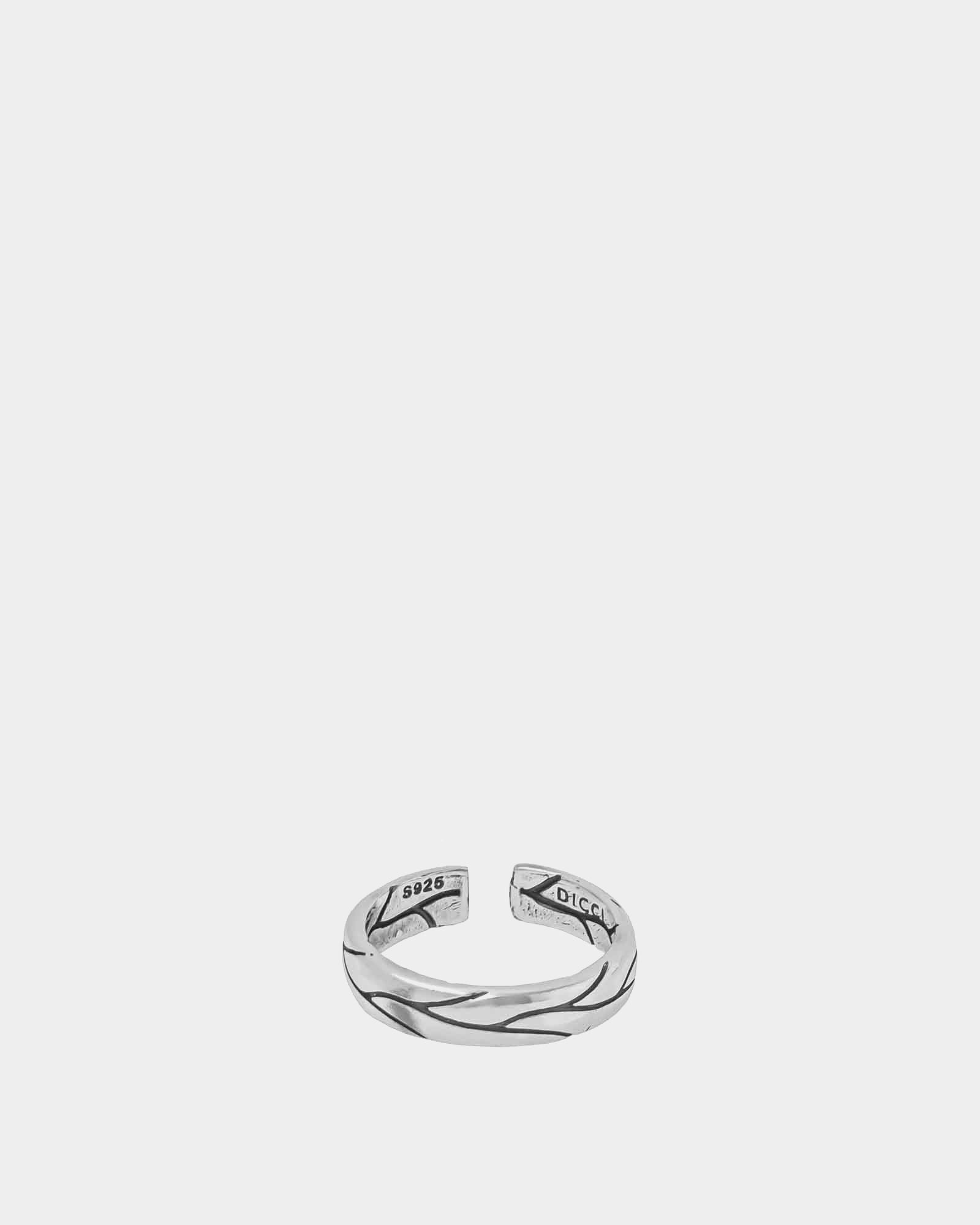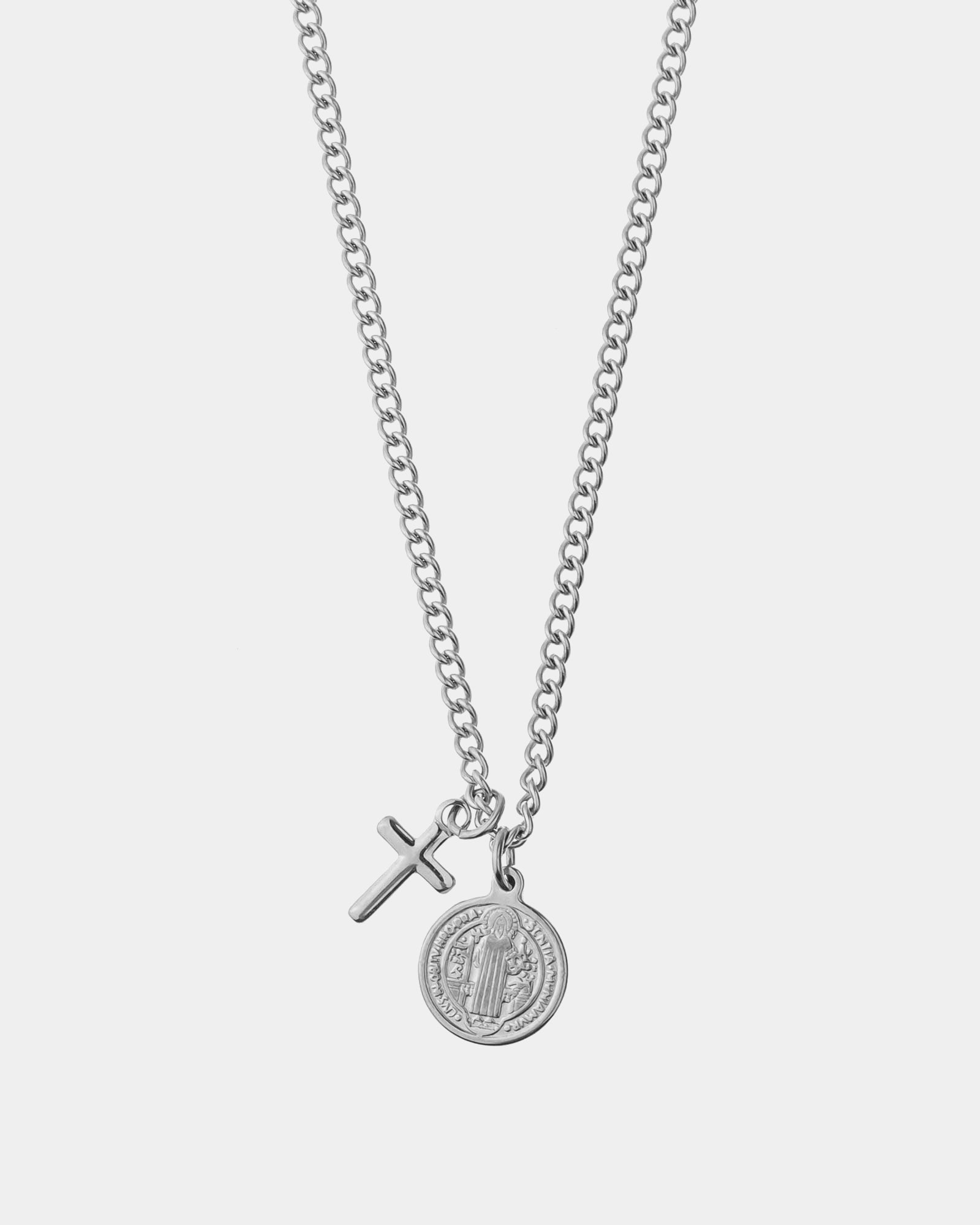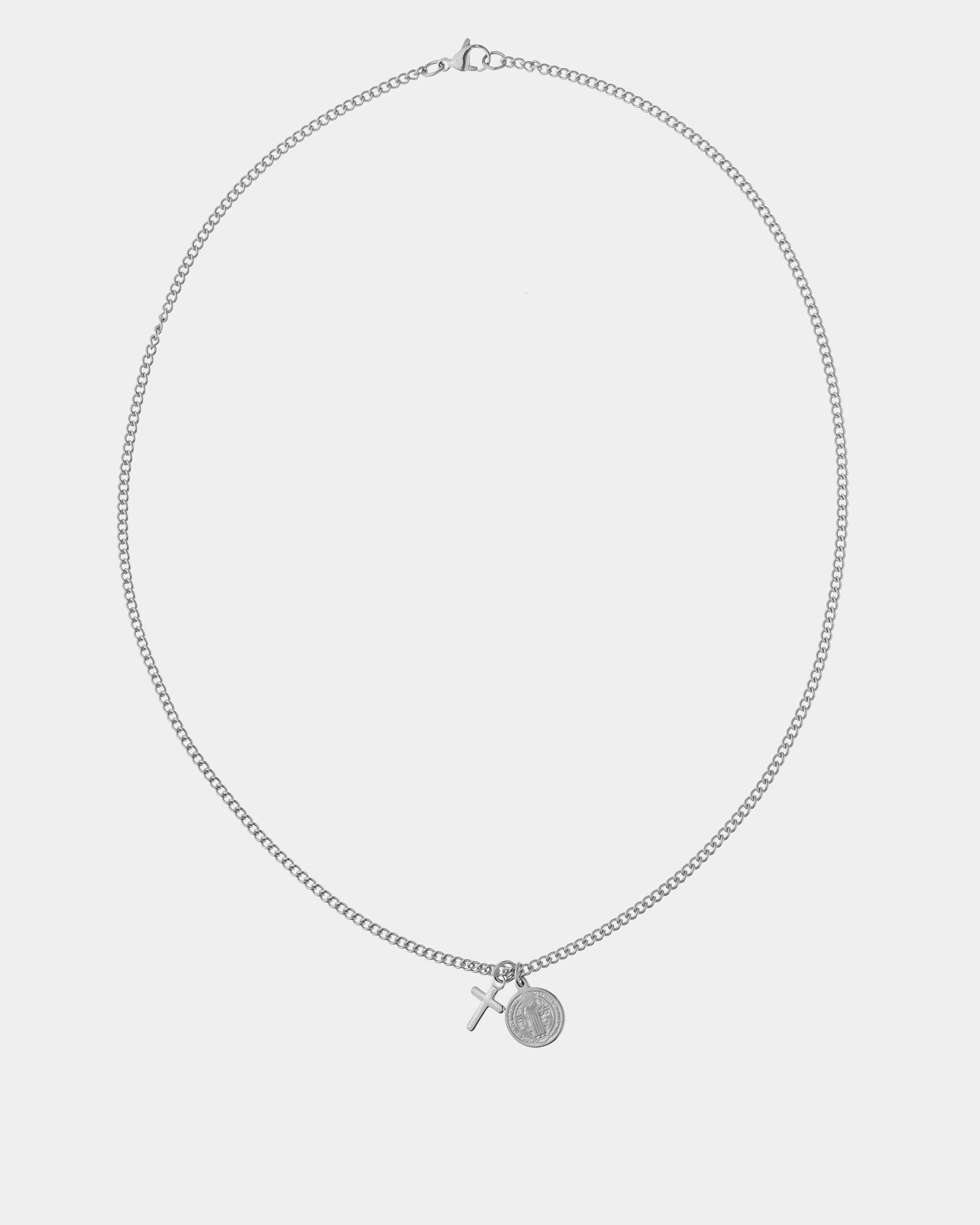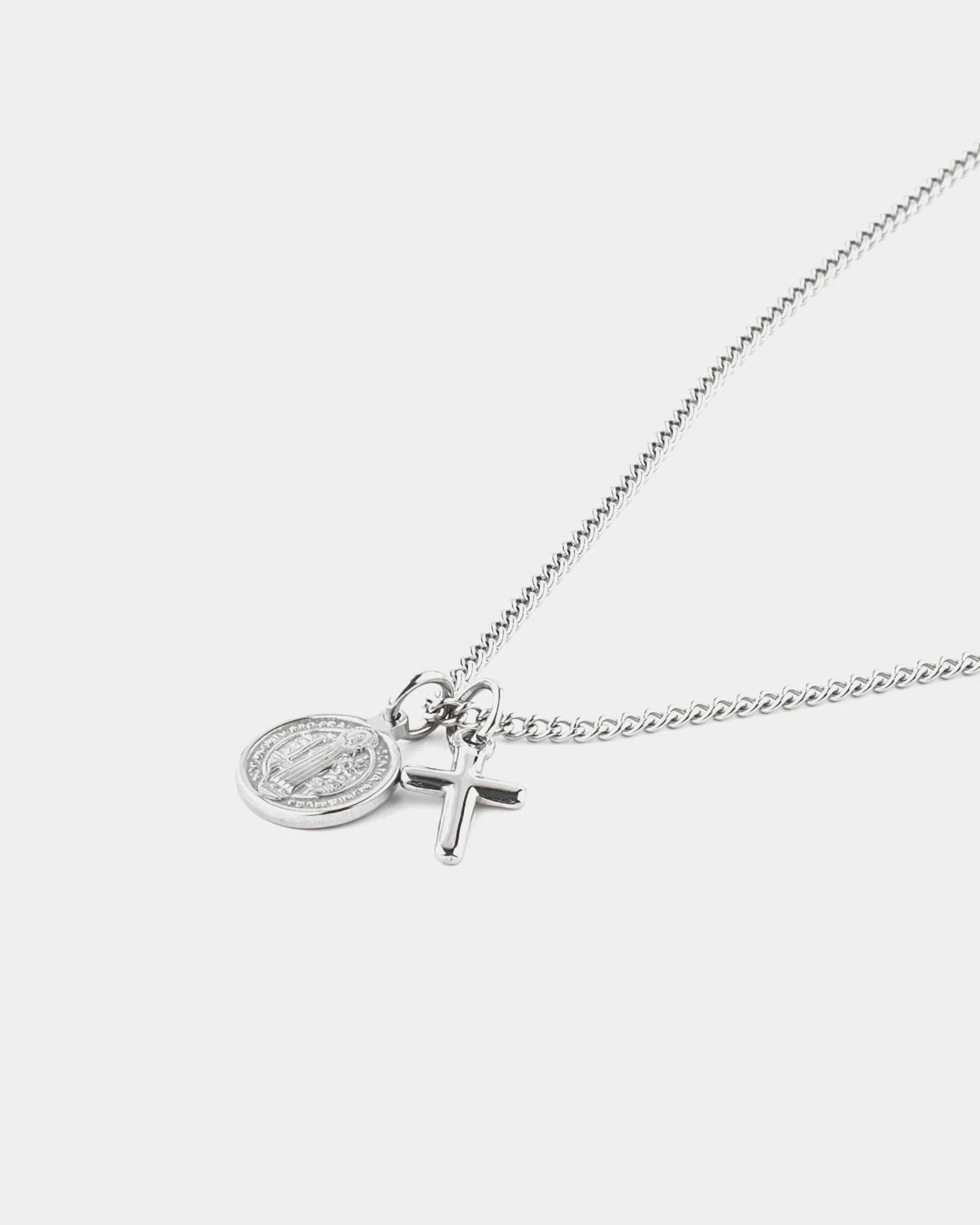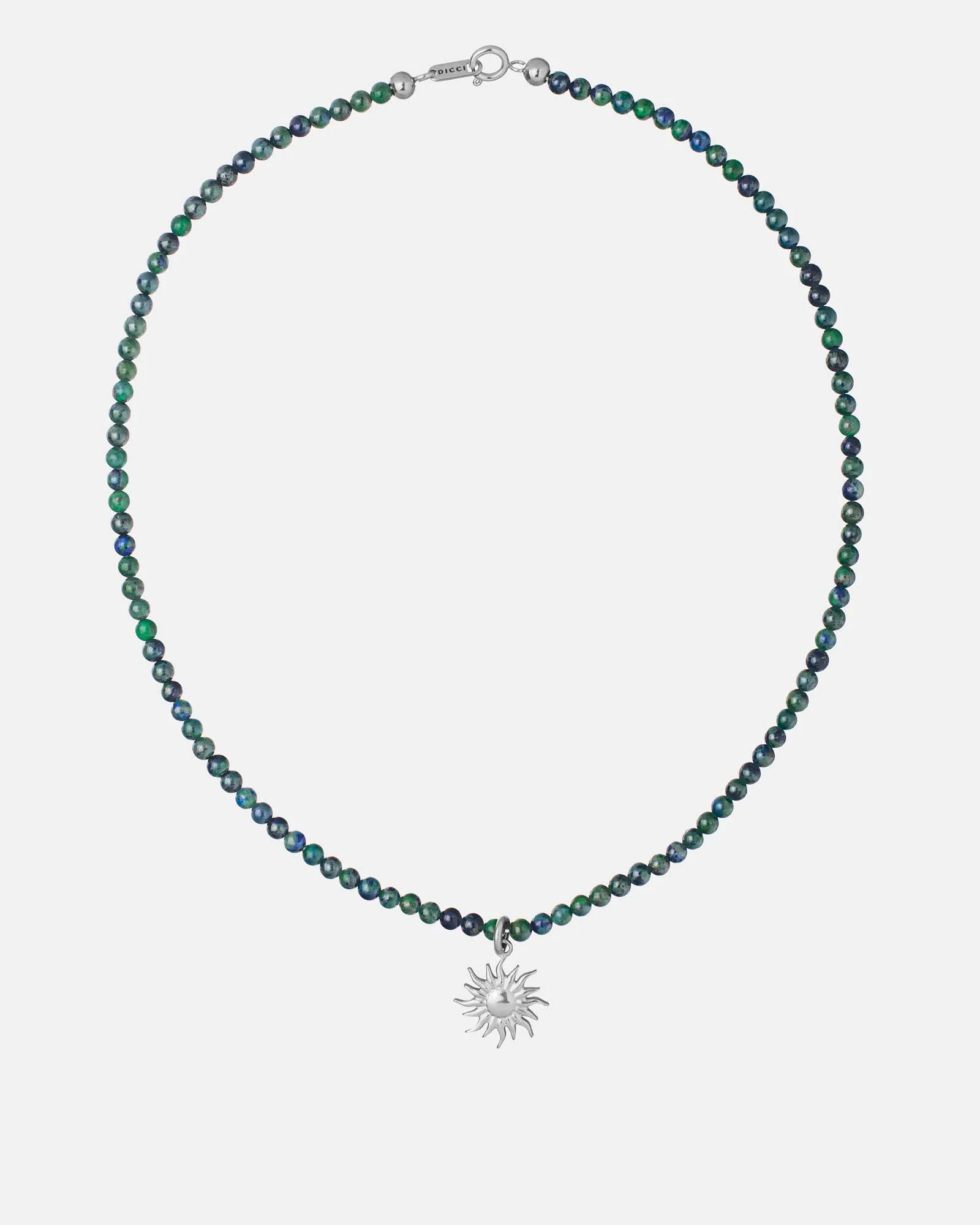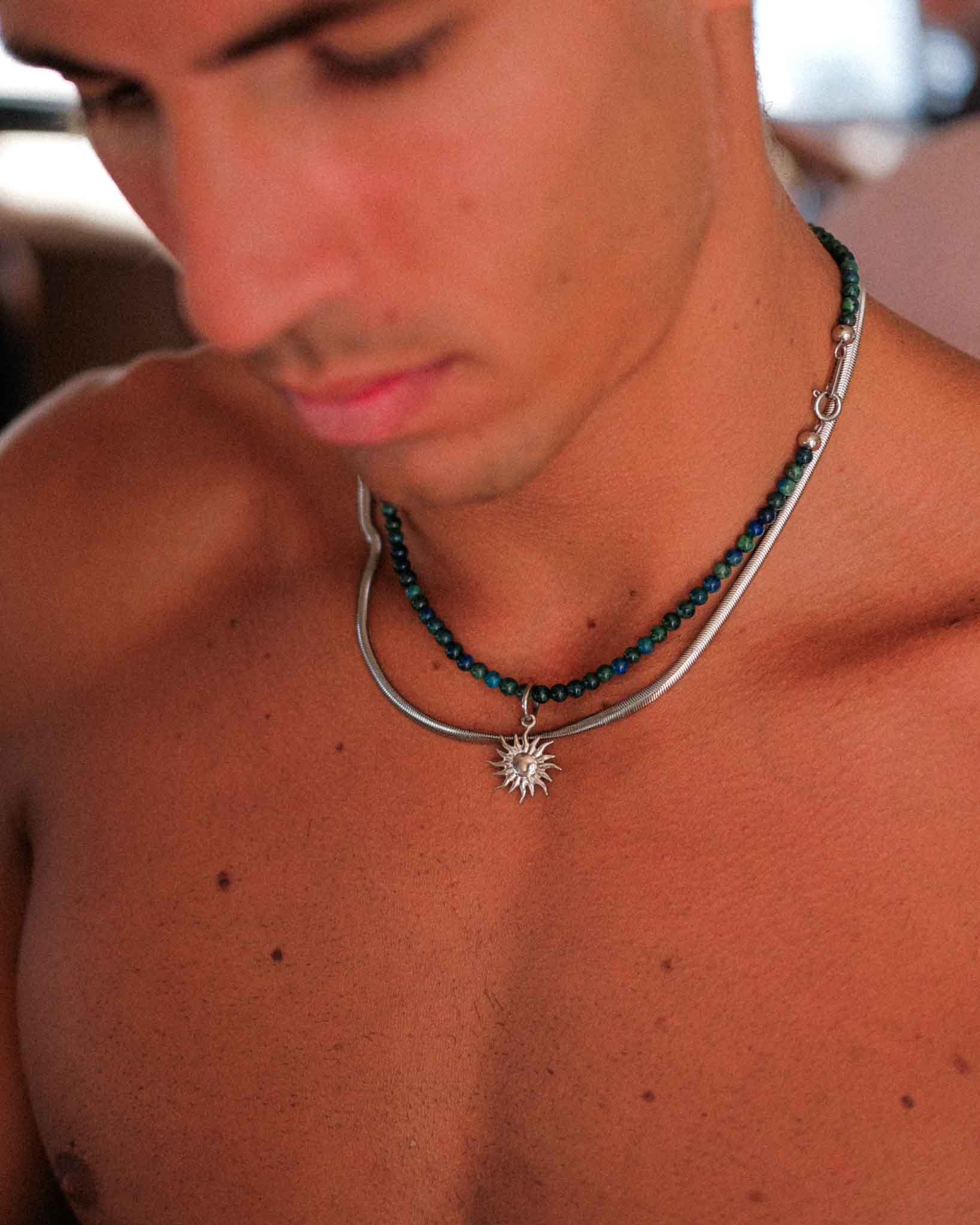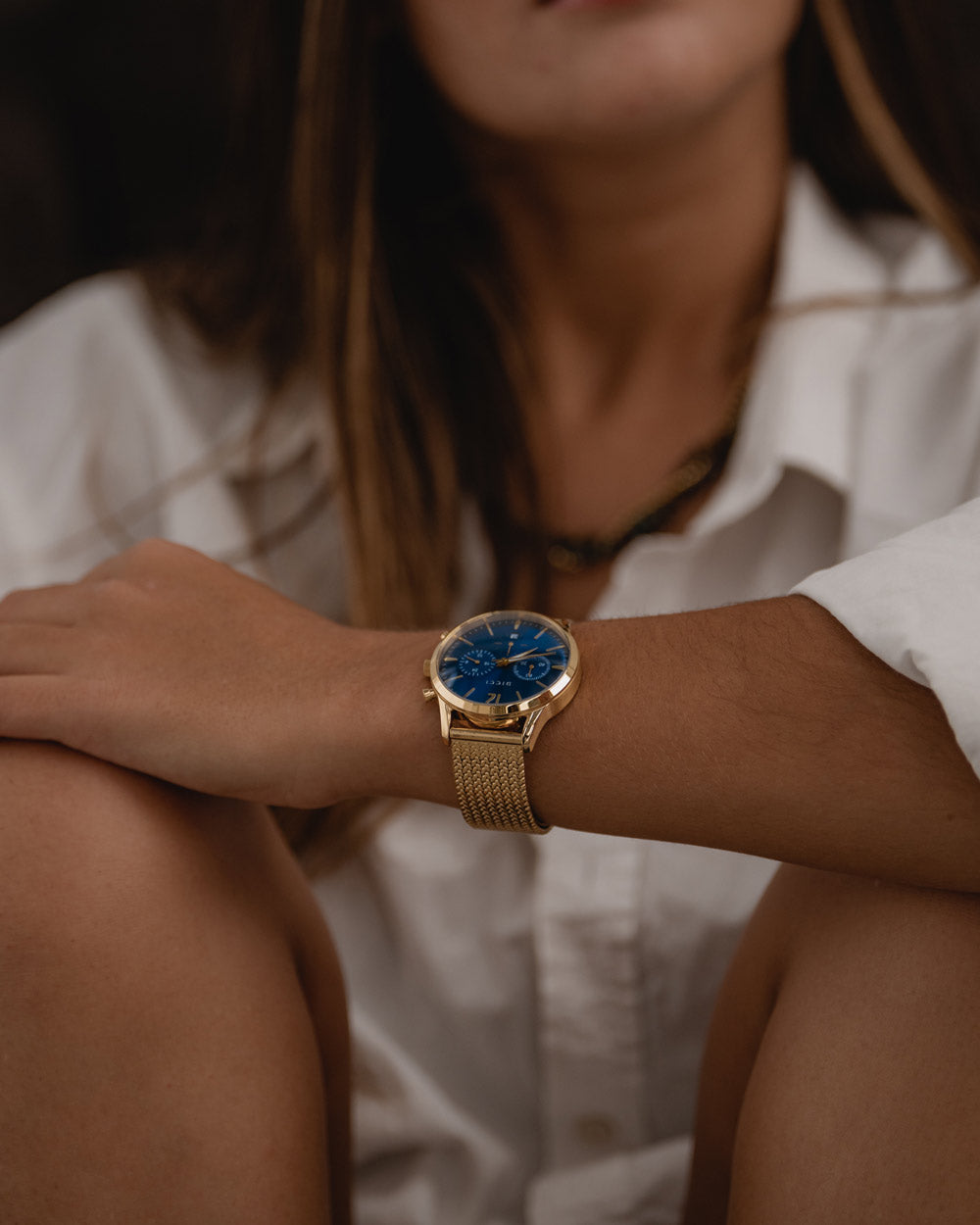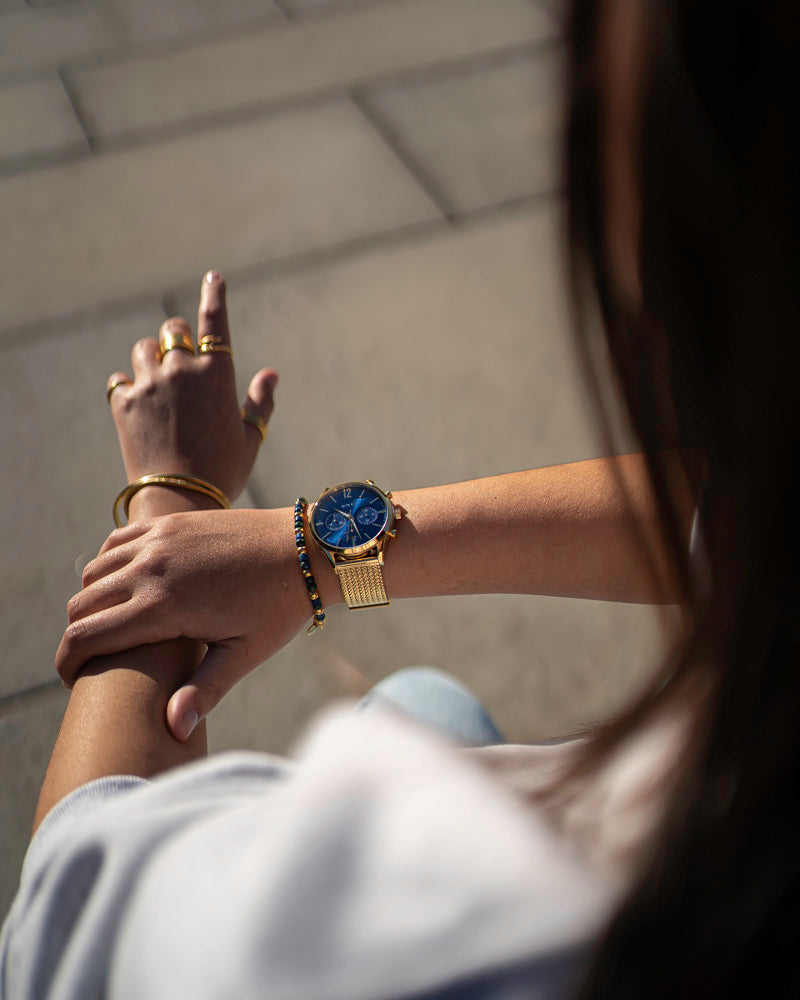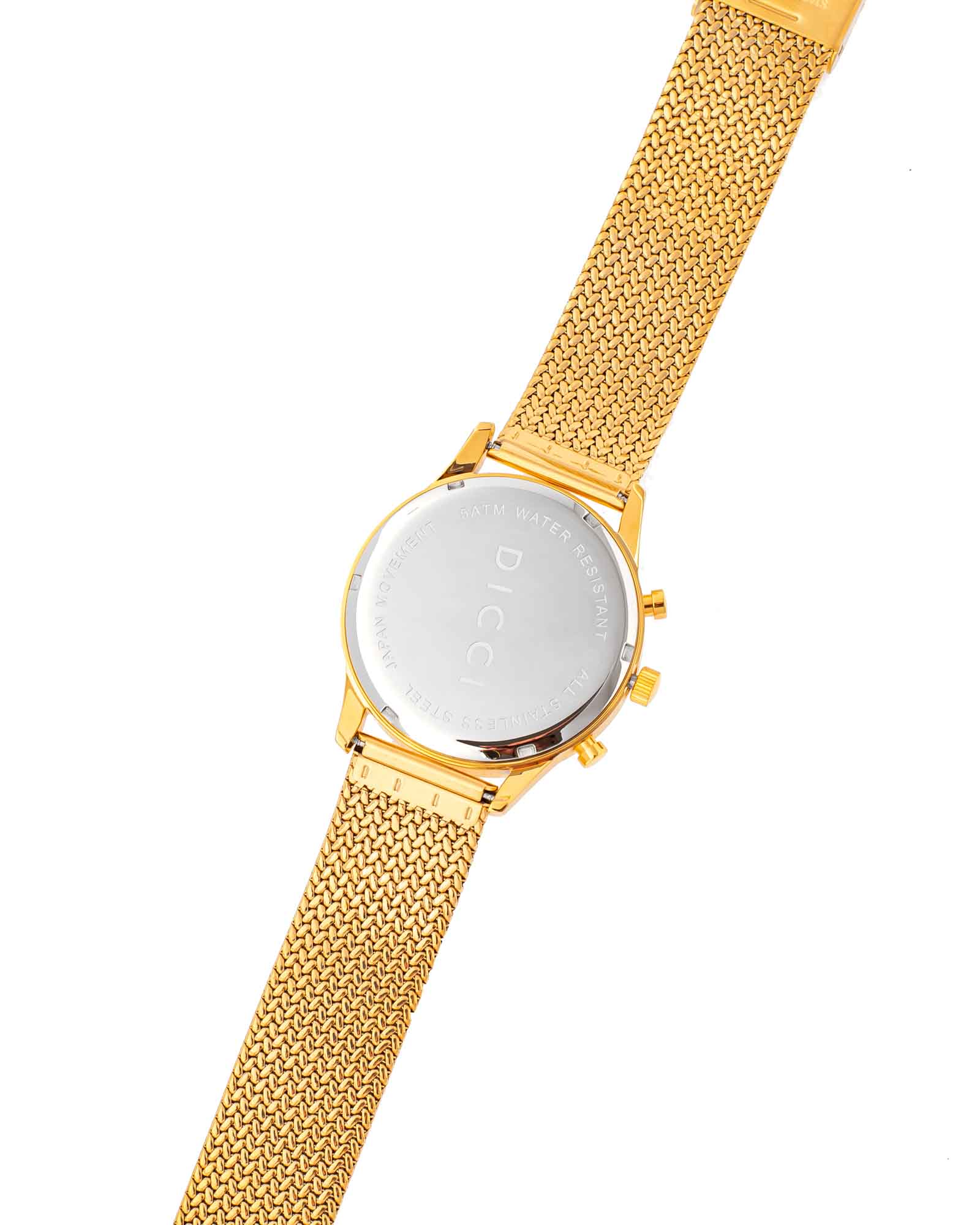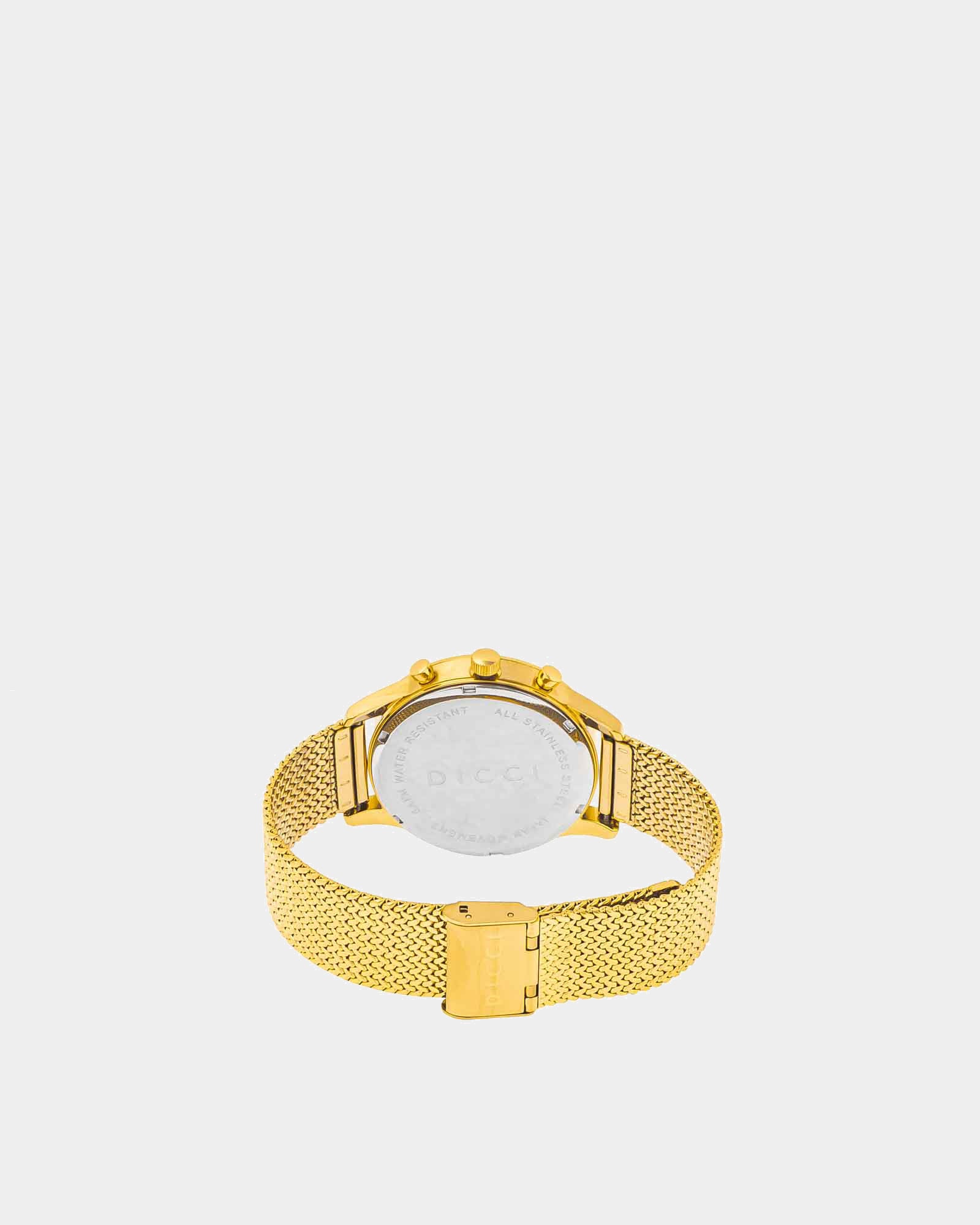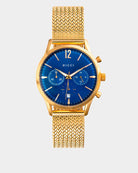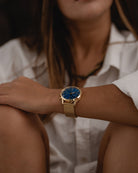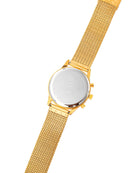Chronometer watch - Blue dial with gold bracelet
Pickup available at Porto
Usually ready in 24 hours
Distinguished by its imposing presence, the Chronometer blue dial is a classic piece for watch lovers. With its stainless steel case and bracelet, its integrity leaves no one indifferent. With date window and waterproof.
Case Diameter: 41mm.
Dial Color: Blue.
Case Material: 316L Stainless Steel.
Strap Composition: 316L Stainless Steel.
Water Resistance: 5ATM.
Movement: Japanese Quartz.
Glass: Mineral Glass.
Adjustable size
Weight: 84g
At Dicci we want you to feel comfortable when shopping, so you have one hundred days to make your returns.
If you want to receive the return in money, you will be able to do it in the first 15 days after receiving the product.
All the returns and exchanges will be physically verified before being accepted. Make sure your products don’t have signs of use and still have their labels on.
Shipping costs cannot be returned and every additional shipping will be supported by the client.
If you need any more information about returns and exchanges, please contact our support hello@dicci.eu.
A watch does more than just tell the time. Often, there are personal memories associated with it, making it an incredibly sentimental object. And, if taken care of properly, you can pass your watch on to future generations. Watches are built to last, and it’s not difficult to properly take care of it to keep it in top shape:
Cleaning Your Watch
Clean your watch as often as possible. Take a soft cloth and wipe down the band and the case to remove any dirt or dust. Soak the watch in soap and water every couple of months to loosen the dirt.
Getting Your Watch Serviced
Get your watch serviced every two or threes years for a mechanical watch and three to four years for a quartz watch.
Keeping Away from Magnets
Avoid magnets. Some of you may not be aware that placing your watch close to a magnet can negatively affect the timekeeping of your watch.
Water Resistance Matters
First keep in mind that it's better not to push your watch to it's limit. If you are in doubt about something that may be dangerous, it's always best to keep it safe. Know your watch’s water resistance. Most watches these days are built with some water resistance, but vintage watches tend to lose their waterproof-ness over time. If your watch is not water resistant, it can still handle small splashes of water, but it’s best to avoid it. And, if your watch has a leather band, avoid getting your watch wet—water weakens the leather. A watch might have a good water resistance rating, but the material used in gaskets and seals can dry out, impairing a watch's water resistance. If you swim or shower with your watch, you might even want to check water resistance annually. Also damage caused by water leaks is never accepted in warranty, so you know your watch safety only depends on you.
Your Watch’s Crystal
Take care of the crystal. This is quite obvious, but it’s still important and worth mentioning. Take every precaution you can to prevent from banging the crystal of your watch against a wall or any other objects that may cause scratches.
Saving the Watch Box
Keep your watch box for storage. When not wearing your watch, it’s best to keep it in the box it came in. By setting the watch on its side or on the crystal, there is always the possibility the watch could get scratched. The watch box is made to keep the watch safe and offers protection for the watch.
Limiting Sun Exposure
Avoid extended exposure to sunlight. Heat can shorten the battery life, so it’s best to prevent your watch from being placed in direct sunlight.
Staying Away from Chemicals
Avoid contact with chemicals, such as cleaning supplies. Also, it’s best to avoid contact between your watch and perfume, especially if the watch has a leather band. Perfume can damage the band, weakening it and potentially causing it to tear. When spraying perfume or cologne, let it completely dry before placing the watch on your wrist.
Trust the Professionals
Never open your watch by yourself. Leave this to a watchmaker. Opening your watch can expose it to dust, dirt, and other particles that can get inside the movement, so it’s best to leave this up to a professional.
